
Suwon: The Heartbeat of Korean Heritage and Innovation
Suwon, the capital of Gyeonggi Province in South Korea, is a city that effortlessly merges history with modernity. Known for its well-preserved Hwaseong Fortress, a UNESCO World Heritage site, Suwon offers a glimpse into the rich cultural tapestry of Korea. The fortress, built in the late 18th century, stands as a testament to the architectural ingenuity of the Joseon Dynasty. Visitors can walk along the ancient walls, explore the imposing gates, and enjoy panoramic views of the city from the watchtowers. Suwon's modern side is equally captivating. The city is home to Samsung's Digital City, making it a hub of technological advancements and innovation. This juxtaposition of old and new provides a unique experience for tourists, allowing them to immerse themselves in both cultural heritage and cutting-edge technology. The city's vibrant markets, bustling shopping districts, and delightful street food further enhance its appeal. In addition to its historical and technological allure, Suwon is also known for its beautiful parks and green spaces. The picturesque Gwanggyo Lake Park and the serene Manseok Park offer perfect spots for relaxation and leisure. Food enthusiasts will be delighted with Suwon's famous chicken street, where they can savor the city's renowned fried chicken dishes. With its rich history, modern innovations, and scenic beauty, Suwon promises an unforgettable experience for every traveler.
Local tips in Suwon
- Visit Hwaseong Fortress early in the morning to avoid crowds and enjoy the serene atmosphere.
- Take a guided tour of Samsung Digital City to understand Suwon's role in technological innovations.
- Try the local specialty, Suwon Galbi (marinated beef ribs), at one of the traditional restaurants.
- Use the Suwon City Tour Bus to conveniently explore major attractions.
- Visit the traditional Korean village at the Korean Folk Village for an immersive cultural experience.
- Bring comfortable walking shoes for exploring the parks and fortress walls.
- Check the local calendar for cultural events and festivals happening during your visit.
Neighbourhoods in Suwon
Suwon: The Heartbeat of Korean Heritage and Innovation
Suwon, the capital of Gyeonggi Province in South Korea, is a city that effortlessly merges history with modernity. Known for its well-preserved Hwaseong Fortress, a UNESCO World Heritage site, Suwon offers a glimpse into the rich cultural tapestry of Korea. The fortress, built in the late 18th century, stands as a testament to the architectural ingenuity of the Joseon Dynasty. Visitors can walk along the ancient walls, explore the imposing gates, and enjoy panoramic views of the city from the watchtowers. Suwon's modern side is equally captivating. The city is home to Samsung's Digital City, making it a hub of technological advancements and innovation. This juxtaposition of old and new provides a unique experience for tourists, allowing them to immerse themselves in both cultural heritage and cutting-edge technology. The city's vibrant markets, bustling shopping districts, and delightful street food further enhance its appeal. In addition to its historical and technological allure, Suwon is also known for its beautiful parks and green spaces. The picturesque Gwanggyo Lake Park and the serene Manseok Park offer perfect spots for relaxation and leisure. Food enthusiasts will be delighted with Suwon's famous chicken street, where they can savor the city's renowned fried chicken dishes. With its rich history, modern innovations, and scenic beauty, Suwon promises an unforgettable experience for every traveler.
When is the best time to go to Suwon?
Iconic landmarks you can’t miss
Hwaseong Haenggung
Discover the historical elegance of Hwaseong Haenggung, a royal palace in Suwon, rich in culture and architectural beauty, part of UNESCO World Heritage.
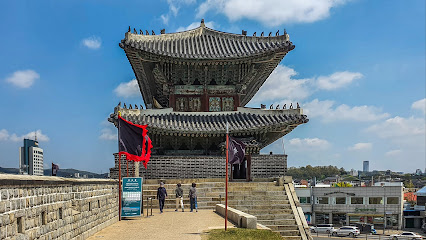
Hwaseong Fortress, Suwon
Discover the history and beauty of Hwaseong Fortress, a UNESCO World Heritage site and a remarkable testament to the Joseon Dynasty's architectural brilliance.
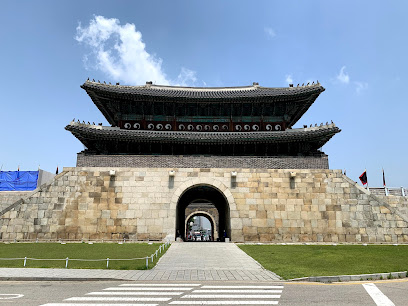
Gwanggyo Lake Park
Discover the natural beauty and tranquility of Gwanggyo Lake Park, an ecological gem in Suwon perfect for relaxation and outdoor activities.
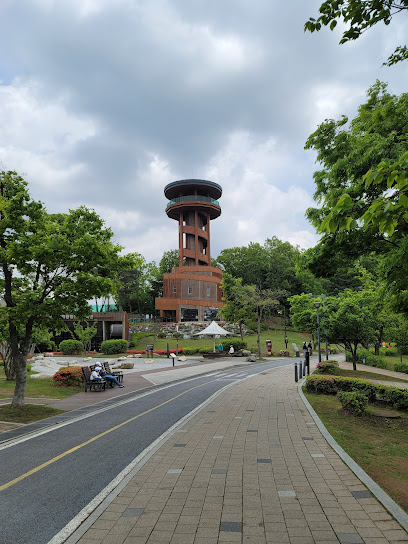
Paldalmun (Paldal Gate)
Discover the historical grandeur of Paldalmun, Suwon's iconic gateway that embodies the rich culture and heritage of South Korea.
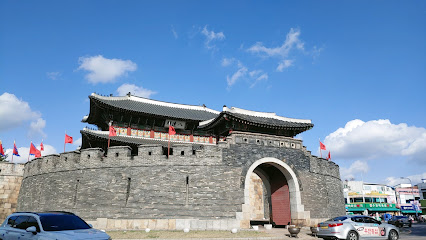
Jidong Market
Explore Jidong Market, Suwon's traditional market, brimming with local culture, delicious street food, and unique crafts.
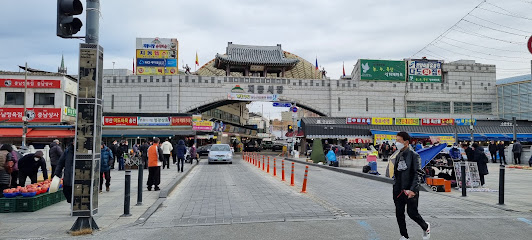
Banghwasuryujeong Pavilion (Dongbukgangnu)
Explore the enchanting Banghwasuryujeong Pavilion in Suwon, a UNESCO World Heritage site, where history meets breathtaking natural beauty.
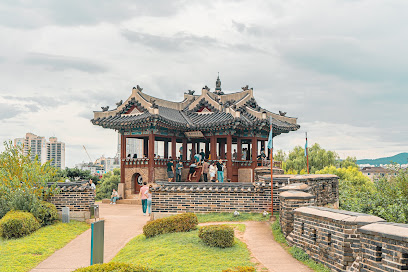
Yeonmudae
Explore the historical richness of Yeonmudae in Suwon-si, a captivating site that reveals Korea's cultural heritage and architectural beauty.
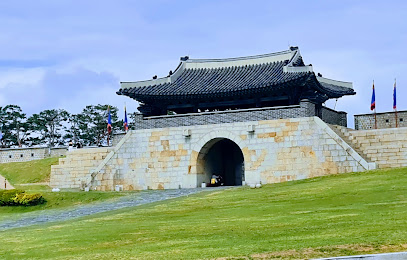
Manseok Park
Discover the tranquil beauty of Manseok Park in Suwon, a perfect blend of nature and recreation for every traveler.
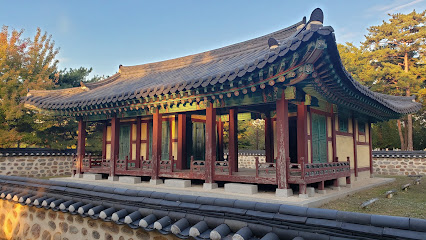
Janganmun Gate
Explore the rich history of Suwon at Janganmun Gate, a stunning architectural marvel and a UNESCO World Heritage site.
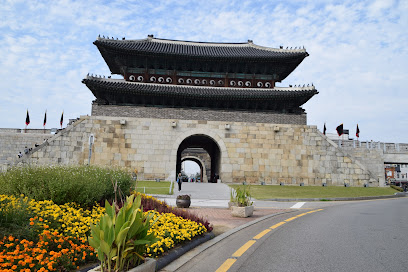
Hwahong Gate (Hwahongmun, Buksumun)
Explore the enchanting Hwahong Gate in Suwon, a UNESCO World Heritage site that showcases the beauty and history of the Joseon Dynasty.
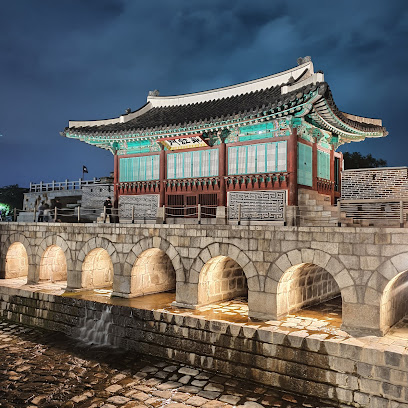
Suwon Hwaseong Museum
Explore the Suwon Hwaseong Museum, a gateway to Korea’s architectural heritage and a UNESCO World Heritage site showcasing the splendor of Hwaseong Fortress.
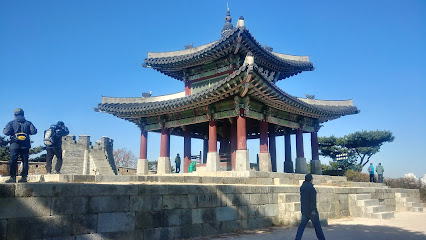
Mr. Toilet House
Explore the quirky Mr. Toilet House in Suwon, a unique museum dedicated to the history and culture of sanitation and hygiene.
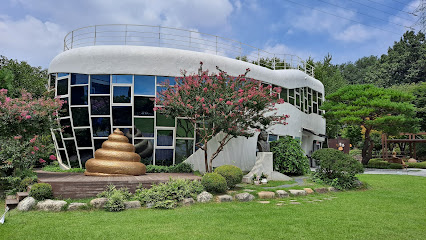
Hwaseomun Gate
Explore the historic Hwaseomun Gate in Suwon, a stunning architectural marvel and a key part of Korea's cultural heritage.
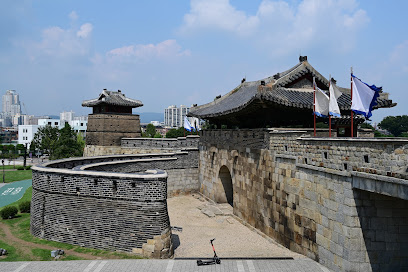
Paldalmun Traditional Market
Discover the authentic flavors and vibrant culture of Suwon at Paldalmun Traditional Market, a bustling hub of local cuisine and handmade crafts.
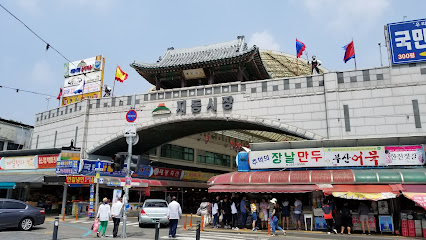
Suwon Yeongdong Market
Explore the vibrant Suwon Yeongdong Market for an authentic taste of Korean culture, culinary delights, and unique artisan crafts.
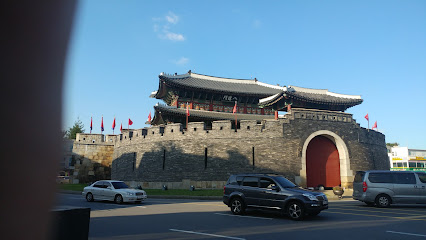
Unmissable attractions to see
Everland
Explore the thrills and beauty of Everland, South Korea's premier amusement park, featuring rides, gardens, and wildlife encounters for all ages.
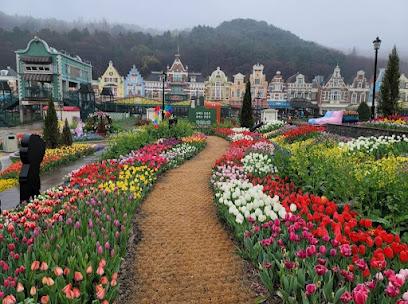
N Seoul Tower
Discover the breathtaking views and cultural significance of N Seoul Tower, a must-see attraction in the heart of Seoul.
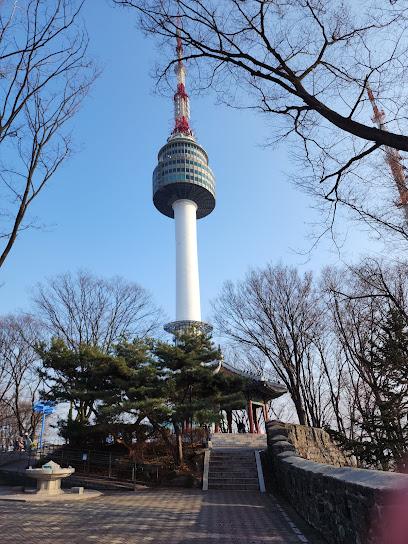
Lotte World
Experience the thrill of Lotte World, Seoul’s premier theme park with exhilarating rides, captivating shows, and unforgettable family fun.

Gyeongbokgung Palace
Explore Gyeongbokgung Palace, a stunning cultural landmark in Seoul, showcasing Korea's rich history, architecture, and beautiful gardens.
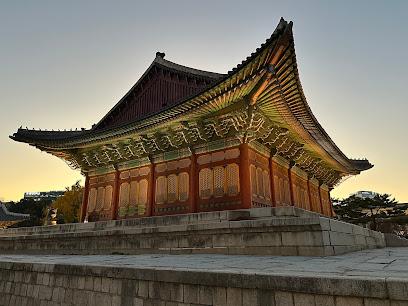
Gwangjang Market
Experience the flavors of Korea at Gwangjang Market, where tradition meets taste in the heart of Seoul's vibrant culinary scene.
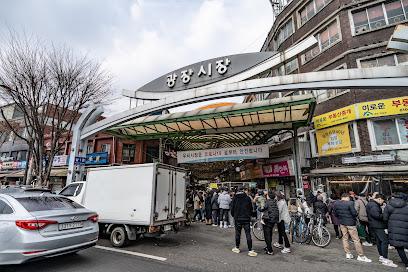
Dongdaemun Design Plaza (DDP)
Discover the architectural marvel of Dongdaemun Design Plaza, a cultural hub in Seoul blending modern design with rich history.
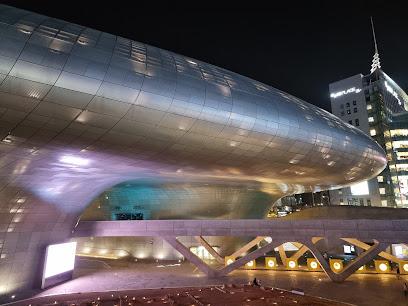
National Museum of Korea
Explore the National Museum of Korea: A cultural treasure trove showcasing Korea's rich history and artistic heritage, set in the heart of Seoul.
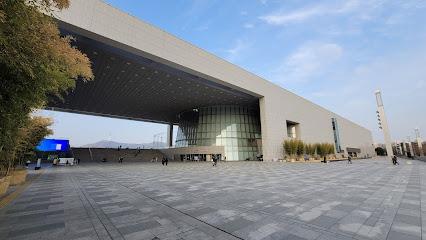
Noryangjin Fisheries Wholesale Market
Discover the exquisite flavors and vibrant atmosphere of Noryangjin Fisheries Wholesale Market in the heart of Seoul, a seafood lover's paradise.
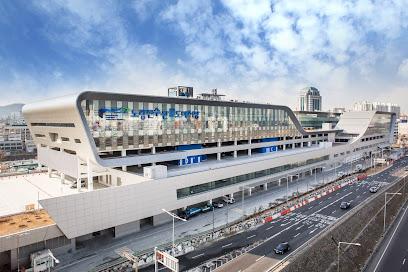
Deoksugung Palace
Explore Deoksugung Palace, a historical gem in Seoul, where traditional architecture meets serene gardens in a captivating cultural landscape.
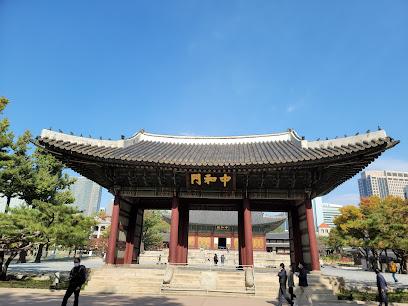
Bukchon Hanok Village
Discover the enchanting Bukchon Hanok Village, a cultural gem in Seoul showcasing traditional Korean architecture and vibrant heritage.
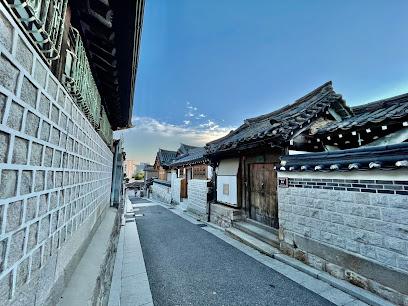
War Memorial of Korea
Explore Korea's military history at the War Memorial of Korea, a poignant tribute to those who sacrificed for peace and freedom.
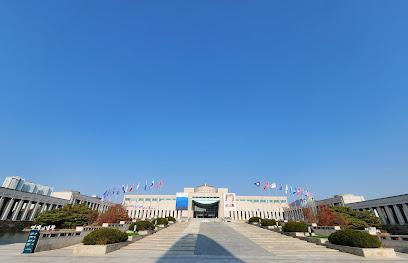
Yeouido Hangang Park
Discover the charm of Yeouido Hangang Park in Seoul, where nature meets recreation along the beautiful Han River.
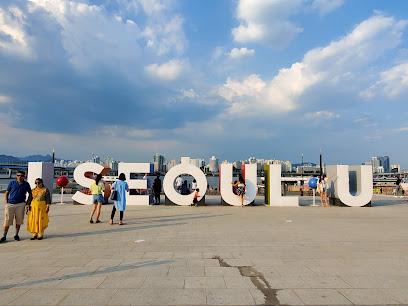
Korean Folk Village
Experience the rich traditions and vibrant culture of Korea at the Korean Folk Village, a unique blend of history, amusement, and scenic beauty.
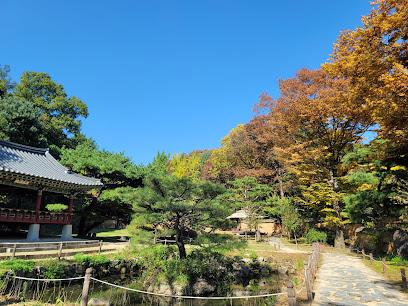
LOTTE WORLD AQUARIUM
Explore the depths of marine life at Lotte World Aquarium in Seoul, an immersive experience for all ages showcasing diverse aquatic wonders.
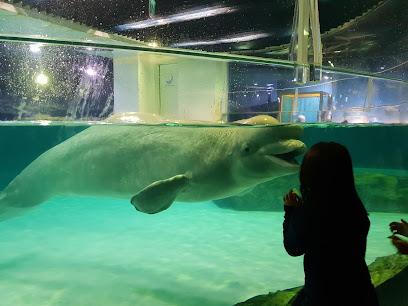
Seoul Grand Park
Explore Seoul Grand Park: A unique blend of zoo, theme park, and lush gardens in Gyeonggi-do, perfect for family fun and nature exploration.
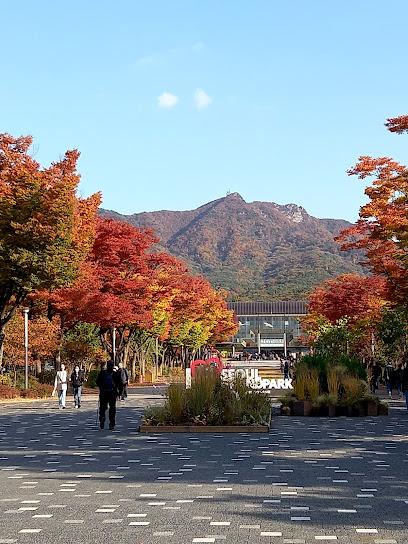
Essential places to dine
Gabojeong Galbi
Discover authentic Korean barbecue at Gabojeong Galbi in Suwon-si—an unforgettable experience of premium beef and rich flavors.
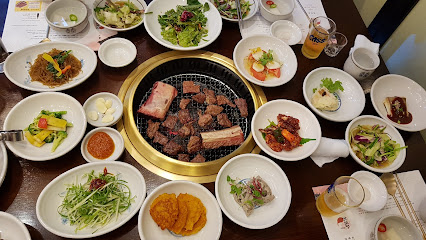
유치회관
Experience authentic Korean breakfast at 유치회관 in Suwon-si - where tradition meets flavor in every bite.
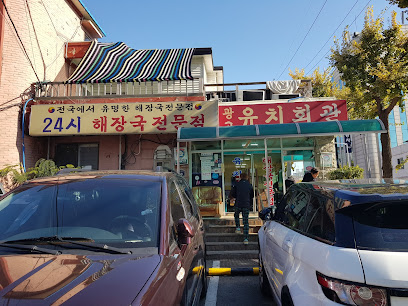
Bonsuwon Galbi
Experience authentic Korean BBQ at Bonsuwon Galbi - where flavor meets tradition in every delicious bite.
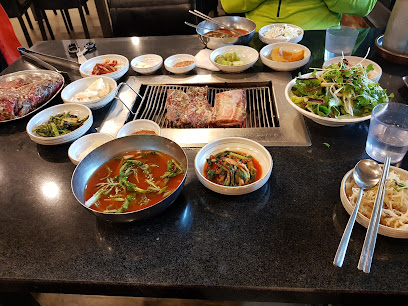
Jin Mi Chicken
Experience authentic Korean fried chicken at Jin Mi Chicken in Suwon-si – where flavor meets tradition in every crispy bite.
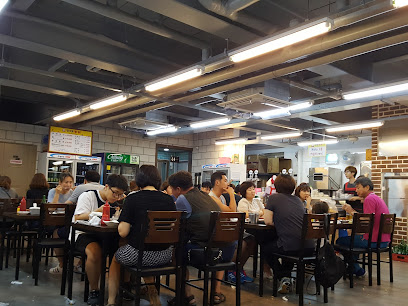
Boyoung Mandoo
Discover authentic Korean flavors at Boyoung Mandoo, Suwon's beloved dumpling destination known for its handmade delights.
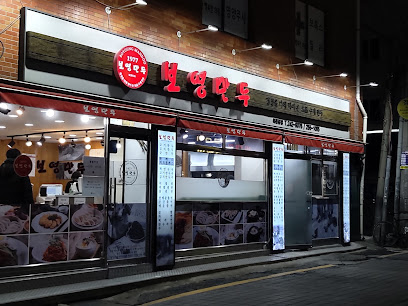
Silla Galbi
Experience authentic Korean BBQ at Silla Galbi in Suwon - where flavors come alive with every grilled bite.
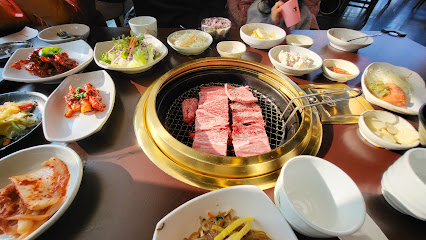
육풍 수원역점
Discover culinary bliss at 육풍 수원역점 in Suwon – where premium meats meet authentic Korean BBQ experience.
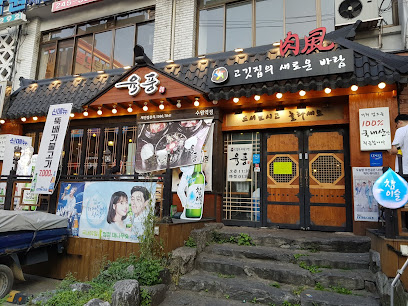
Kabojung Kalbi
Experience authentic Korean BBQ at Kabojung Kalbi in Suwon-si—where premium beef meets traditional flavors.
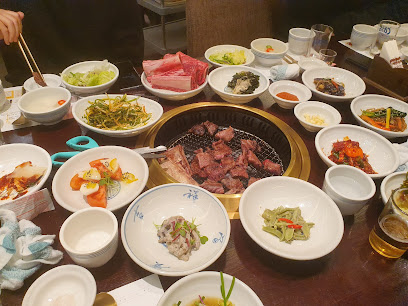
Suwon Mandu
Discover authentic Chinese flavors at Suwon Mandu – home of exquisite dumplings and traditional dishes in Gyeonggi-do.
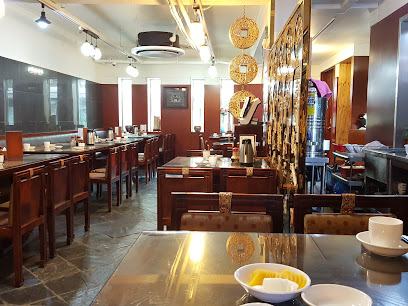
고등반점
Experience authentic Chinese cuisine at 고등반점 in Suwon-si - where flavors come alive in every dish.
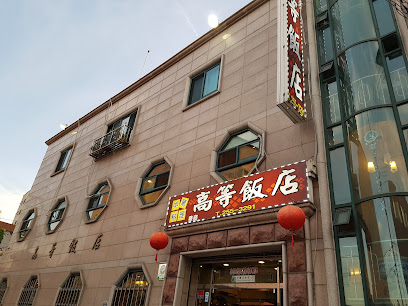
Himalaya Garden Indian Restaurant
Experience authentic Indian flavors at Himalaya Garden - a halal-certified family restaurant and grocery store in Suwon.
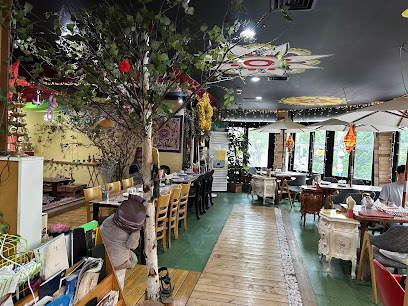
Outback Steakhouse Suwon Station
Experience the rich flavors of premium steaks at Outback Steakhouse Suwon Station, perfect for family gatherings and culinary delights.
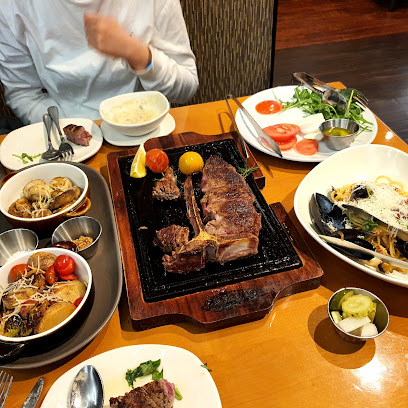
Maehyang Whole Chicken
Discover the authentic taste of Korea at Maehyang Whole Chicken in Suwon-si - where tradition meets flavor.
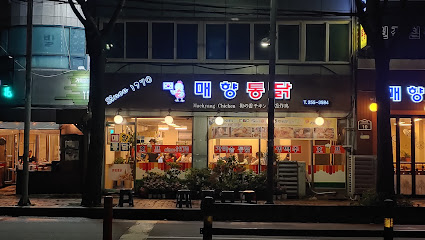
Yeonpo Galbi
Discover authentic Korean barbecue at Yeonpo Galbi in Suwon-si, where premium beef meets traditional cooking techniques.
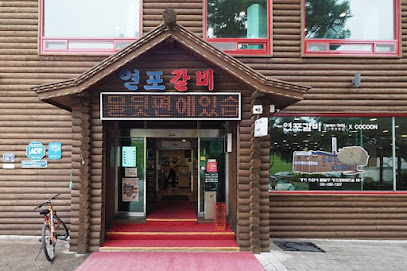
Swoyambhu Indian Restaurant
Experience authentic Indian flavors at Swoyambhu Indian Restaurant in Suwon - where every dish tells a story.
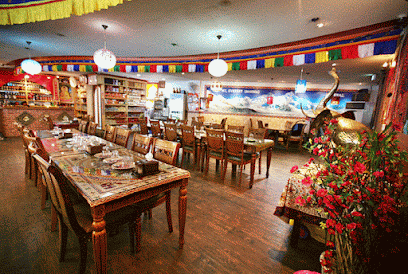
Markets, malls and hidden boutiques
Hwaseong Fortress, Suwon
Hwaseong Fortress: A UNESCO World Heritage Site in Suwon, blending stunning architecture with rich Korean history and breathtaking views.
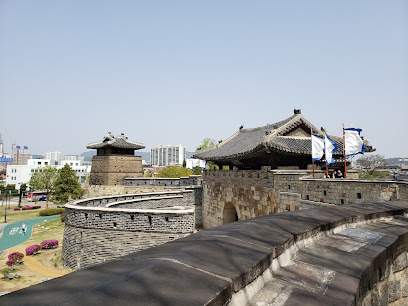
LOTTE MALL Suwon
Discover the ultimate shopping experience at LOTTE MALL Suwon, where retail, dining, and entertainment come together in a vibrant atmosphere.
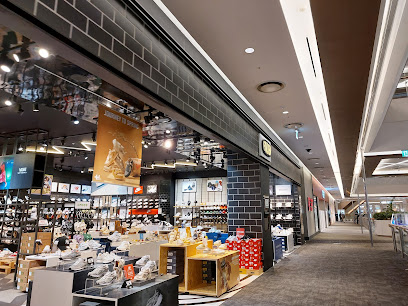
AK PLAZA Suwon
Explore AK PLAZA Suwon, a vibrant department store in Gyeonggi-do, featuring diverse shopping, delicious dining, and family fun for all ages.
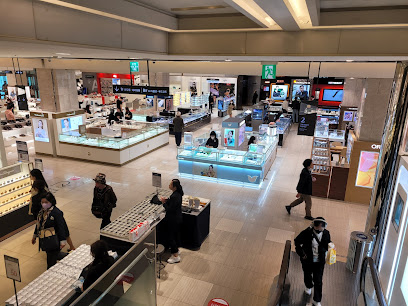
Paldalmun (Paldal Gate)
Discover the historic Paldalmun Gate in Suwon, a majestic symbol of Korea's architectural heritage and a gateway to cultural exploration.
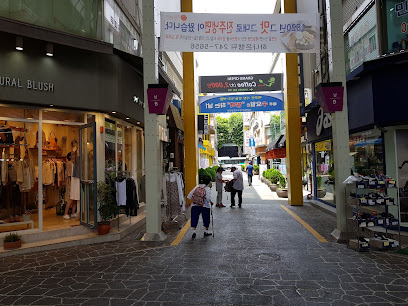
LOTTE Department Store Suwon
Experience unparalleled shopping and dining at LOTTE Department Store Suwon, your ultimate destination in Gyeonggi-do for retail therapy and cultural exploration.
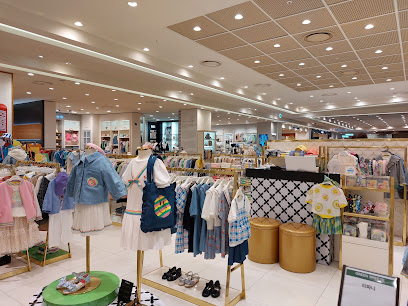
Galleria Department Store Gwanggyo
Discover the elegance of shopping at Galleria Department Store Gwanggyo, where luxury meets local culture in Suwon-si, Gyeonggi-do.
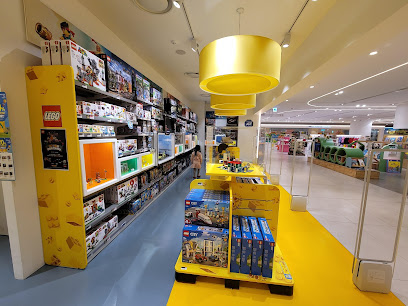
Motgol Market
Explore Motgol Market in Suwon-si: A traditional Korean market bursting with local flavors, vibrant culture, and unique shopping experiences.
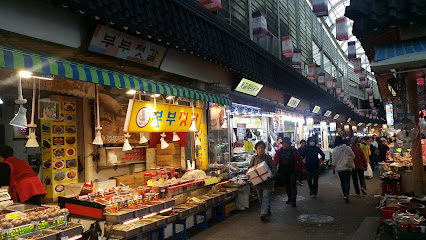
Emart Suwon
Explore Emart Suwon, a vibrant shopping mall offering a delightful mix of retail, dining, and cultural experiences in the heart of Gyeonggi-do.
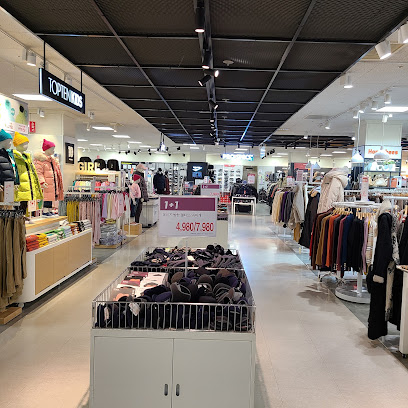
Jidong Market
Discover the heart of Korean culture at Jidong Market, a vibrant traditional market in Suwon-si, where food, crafts, and local life come together.
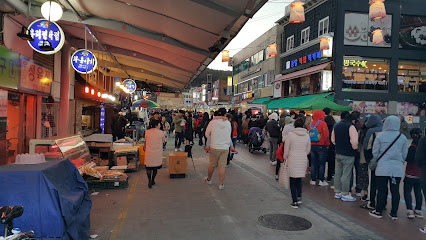
New Core Outlet
Experience top-brand shopping at unbeatable prices in the heart of Suwon at New Core Outlet, a must-visit for all shopping enthusiasts.
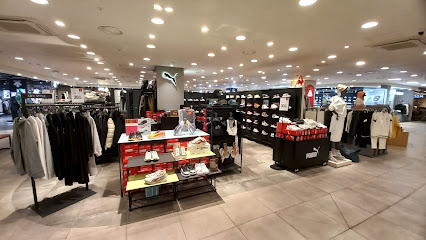
LOTTE MART Suwon
Experience the vibrant shopping culture of South Korea at LOTTE MART Suwon, a hypermarket offering local products and delicious food options.
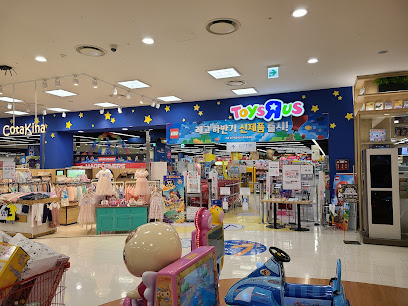
Paldalmun Traditional Market
Explore the vibrant Paldalmun Traditional Market in Suwon for authentic street food, local crafts, and a taste of Korean culture in a bustling atmosphere.
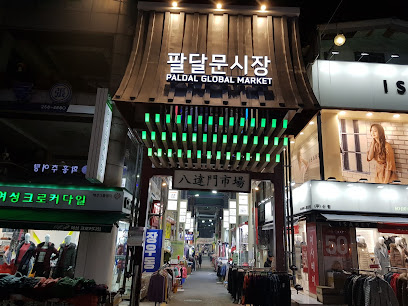
Suwon Yeongdong Market
Explore Suwon Yeongdong Market, where local culture, delicious street food, and unique crafts await your discovery.
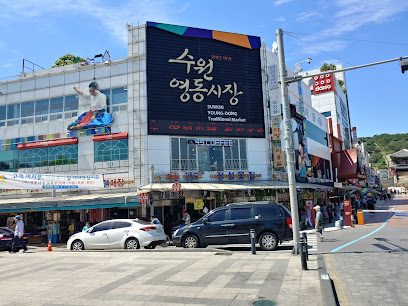
갤러리아백화점 수원점
Explore the luxurious Galleria Department Store in Suwon, offering an exquisite selection of beauty products and a unique shopping experience.
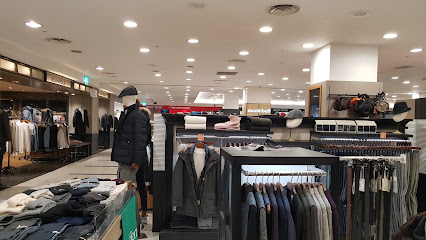
Flying Suwon
Soar above Suwon with an unforgettable hot air balloon ride, capturing breathtaking views and creating lasting memories amidst nature's beauty.
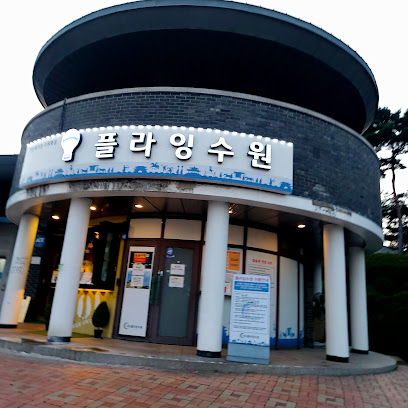
Essential bars & hidden hideouts
Wonderwall Suwon Ingye
Experience the vibrant nightlife of Suwon at Wonderwall – a lively bar and gastropub offering delicious food and a welcoming atmosphere.
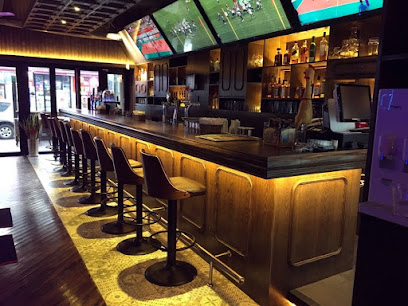
Thursday Party
Dive into the vibrant nightlife of Suwon at Thursday Party, where drinks, music, and unforgettable memories await every night.
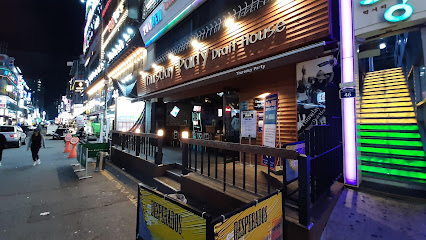
Daily Beer (Suwon Maetan)
Discover the vibrant atmosphere of Daily Beer in Suwon, where local brews meet delicious cuisine in a cozy pub setting.
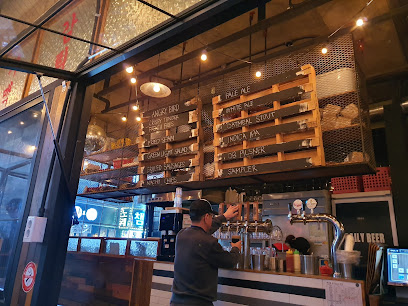
it bar
Experience the vibrant nightlife of Suwon-si at It Bar, where creative cocktails and a lively atmosphere await travelers.
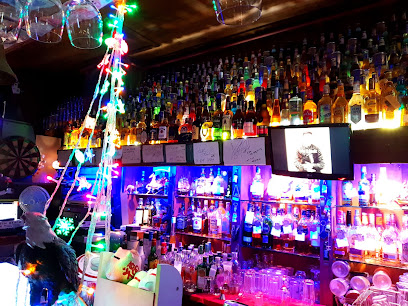
백's비어 수원역점
Discover the best of Suwon's nightlife at 백's비어 수원역점 with a diverse beer selection and a vibrant atmosphere perfect for relaxation.
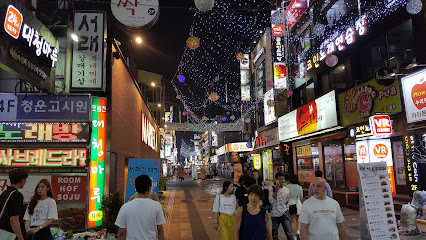
붉은수탉
Immerse yourself in the vibrant nightlife of Suwon at 붉은수탉, where delicious drinks and a lively atmosphere await.
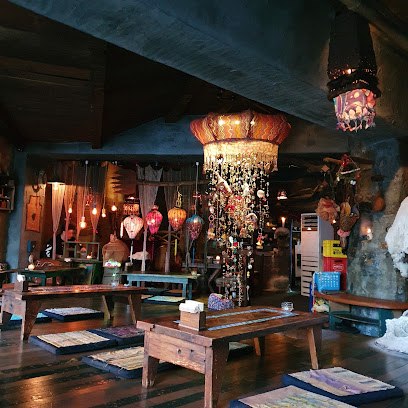
Fiddlers' Pub
Experience the vibrant atmosphere of Fiddlers' Pub in Suwon-si, where local culture meets international flair in an unforgettable bar experience.
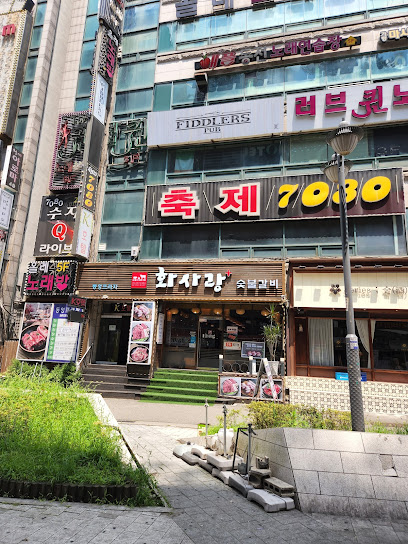
The Big Chill
Experience the vibrant nightlife at The Big Chill, Suwon's favorite bar for cocktails, live music, and unforgettable moments.
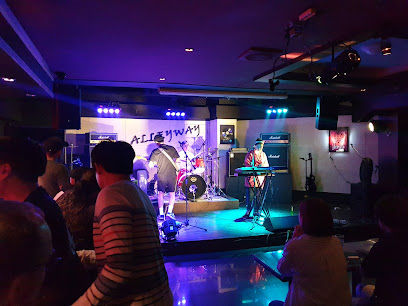
Yakkuk BAR
Experience Suwon's nightlife at Yakkuk BAR, where innovative cocktails and a lively atmosphere create unforgettable moments.
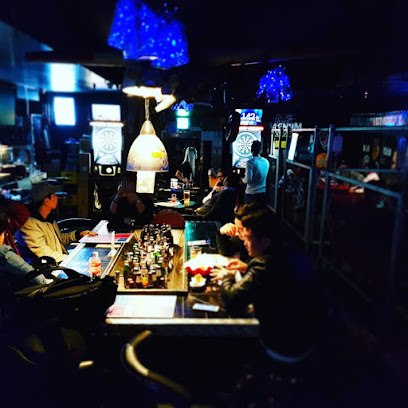
DeTAIL 디테일 BAR
Discover the vibrant nightlife at DeTAIL 디테일 BAR, where expertly crafted cocktails and a lively atmosphere await you in Suwon.
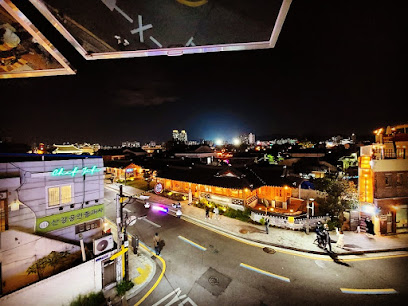
아이엠
Discover the lively spirit of Suwon at 아이엠, where great drinks and vibrant energy await you.
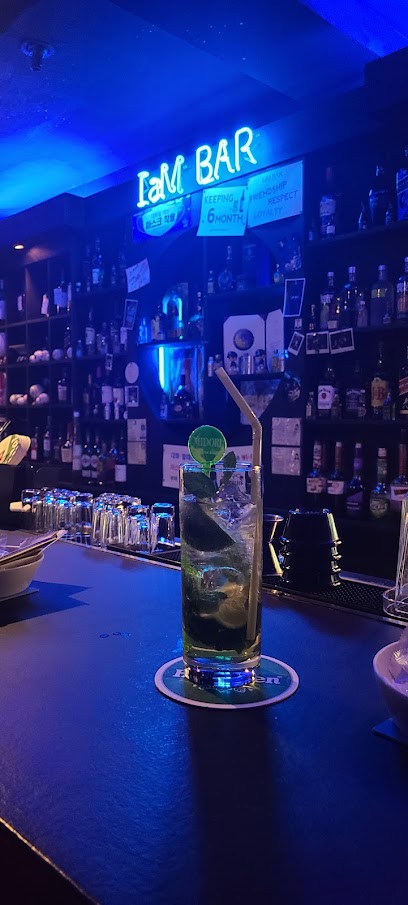
Alleyway Taphouse
Enjoy live music and a cozy atmosphere at Alleyway Taphouse, Suwon's premier destination for nightlife and entertainment.
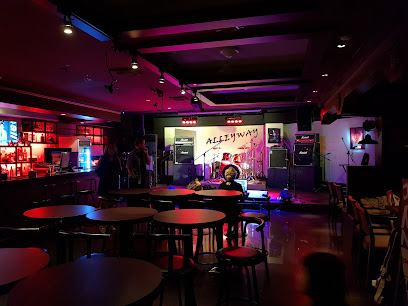
썸데이 몰디브
Discover the lively ambiance and exquisite drinks at Someday Maldives, a top bar in Suwon-si, Gyeonggi-do, perfect for unforgettable nights.
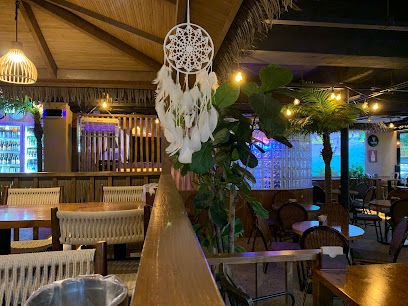
M2 수원역점
Discover the lively atmosphere of M2 Suwon Station, where great drinks and an energetic vibe meet in the heart of Suwon-si.
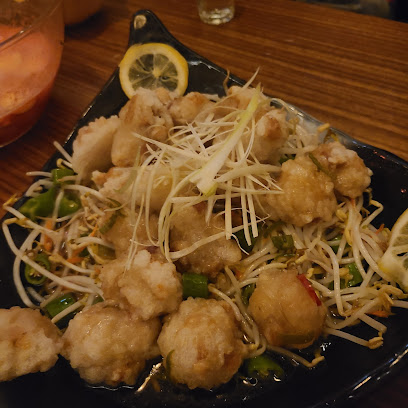
Local Phrases
-
- Hello안녕하세요
[annyeonghaseyo] - Goodbye안녕히 가세요
[annyeonghi gaseyo] - Yes예
[ye] - No아니요
[aniyo] - Please/You're welcome부탁합니다/천만에요
[butakhamnida/cheonmaneyo] - Thank you감사합니다
[gamsahamnida] - Excuse me/Sorry죄송합니다/미안합니다
[joesonghamnida/mianhamnida] - How are you?어떻게 지내세요?
[eotteoke jinaeseyo?] - Fine. And you?잘 지내요. 당신은?
[jal jinaeyo. dangsineun?] - Do you speak English?영어 할 수 있어요?
[yeongeo hal su isseoyo?] - I don't understand이해하지 못해요
[ihaehaji mothaeyo]
- Hello안녕하세요
-
- I'd like to see the menu, please메뉴를 보고 싶어요
[menyureul bogo sipeoyo] - I don't eat meat고기를 먹지 않아요
[gogireul meokji anayo] - Cheers!건배!
[geonbae!] - I would like to pay, please계산할게요
[gyesanhalkkeyo]
- I'd like to see the menu, please메뉴를 보고 싶어요
-
- Help!도와주세요!
[dowajuseyo!] - Go away!가라!
[gara!] - Call the Police!경찰을 불러주세요!
[gyeongchareul bulleojuseyo!] - Call a doctor!의사를 불러주세요!
[uisareul bulleojuseyo!] - I'm lost길을 잃었어요
[gireul ilheosseoyo] - I'm ill아파요
[apayo]
- Help!도와주세요!
-
- I'd like to buy...사고 싶어요...
[sago sipeoyo...] - I'm just looking둘러보고 있어요
[dulleobogo isseoyo] - How much is it?얼마에요?
[eolmaeyo?] - That's too expensive너무 비싸요
[neomu bissayo] - Can you lower the price?가격을 내릴 수 있나요?
[gageoreul naeril su innayo?]
- I'd like to buy...사고 싶어요...
-
- What time is it?지금 몇 시에요?
[jigeum myeot sieyo?] - It's one o'clock한 시에요
[han sieyo] - Half past (10)열 시 반
[yeol si ban] - Morning아침
[achim] - Afternoon오후
[ohu] - Evening저녁
[jeonyeok] - Yesterday어제
[eoje] - Today오늘
[oneul] - Tomorrow내일
[naeil] - 1하나
[hana] - 2둘
[dul] - 3셋
[set] - 4넷
[net] - 5다섯
[daseot] - 6여섯
[yeoseot] - 7일곱
[ilgop] - 8여덟
[yeodeol] - 9아홉
[ahop] - 10열
[yeol]
- What time is it?지금 몇 시에요?
-
- Where's a/the...?...이 어디에 있어요?
[...i eodie isseoyo?] - What's the address?주소가 뭐에요?
[jusoga mwoeyo?] - Can you show me (on the map)?지도로 보여주세요?
[jidoro boyeojuseyo?] - When's the next (bus)?다음 버스는 언제와요?
[daeum beoseuneun eonjewayo?] - A ticket (to ....)표 한 장 주세요
[pyo han jang juseyo]
- Where's a/the...?...이 어디에 있어요?
History of Suwon
-
Suwon, the capital of Gyeonggi Province, has a history that dates back to ancient times. Originally established during the Baekje period, Suwon's name appears in historical records as far back as the Three Kingdoms era. The city's strategic location made it a vital center for political and military activities.
-
One of Suwon's most iconic landmarks is the Hwaseong Fortress, a UNESCO World Heritage site. Constructed between 1794 and 1796 by King Jeongjo of the Joseon Dynasty, the fortress was built to honor and house the remains of his father, Prince Sado. The construction involved advanced engineering techniques and represents a significant achievement in Korean architecture.
-
Suwon played a crucial role during the Korean Empire period, particularly during the Japanese invasion. In 1907, the city was the scene of significant conflict between Korean resistance fighters and Japanese forces. The Siege of Suwon became symbolic of Korean resistance and struggle for independence.
-
In the 20th century, Suwon transformed from a traditional city into a modern urban center. The establishment of Samsung Electronics in Suwon in 1969 marked the beginning of the city's rapid industrial and economic growth. This period also saw significant improvements in infrastructure, education, and public services.
-
Suwon is not only rich in history but also in cultural traditions. The annual Suwon Hwaseong Cultural Festival celebrates the city's heritage with various performances, parades, and traditional ceremonies. The festival attracts visitors from all over the world and provides a unique insight into the local culture.
-
During the Korean War, Suwon was a significant location due to its proximity to the front lines. It served as a strategic military base for both North and South Korean forces. The city experienced considerable damage but was quickly rebuilt in the post-war period, becoming a symbol of resilience and recovery.
-
Suwon is home to several prestigious educational institutions, including Sungkyunkwan University and Ajou University. These institutions have contributed to the city's reputation as a center for higher education and research, attracting students and academics from across South Korea and around the world.
Suwon Essentials
-
Suwon is located approximately 30 kilometers south of Seoul, the capital of South Korea. The most convenient way to reach Suwon is by taking a train from Seoul Station. The journey on the KTX high-speed train takes around 30 minutes, while the slower commuter trains take about an hour. Alternatively, you can take a bus from various locations in Seoul to Suwon. For international travelers, the nearest airport is Incheon International Airport. From the airport, you can take the Airport Railroad (AREX) to Seoul Station and then transfer to a train bound for Suwon.
-
Suwon has an efficient public transportation system that includes buses and the subway. The Suwon Station is a major hub for both trains and buses, making it easy to navigate the city and reach nearby attractions. Taxis are readily available and relatively inexpensive. For a more local experience, consider renting a bicycle to explore the city's extensive bike paths. Additionally, Suwon offers a unique Blue Bus service that is specifically designed for tourists, covering major historical and cultural sites.
-
The official currency in South Korea is the South Korean Won (KRW). Credit cards are widely accepted in Suwon, including in hotels, restaurants, and shops. However, it is advisable to carry some cash, especially when visiting smaller establishments or markets. ATMs are available throughout the city, and many of them offer services in English. Currency exchange services can be found at banks and certain hotels.
-
Suwon is generally a safe city for tourists. However, it is always wise to take standard precautions. Avoid walking alone at night in poorly lit areas and keep an eye on your belongings in crowded places like markets and public transport. While Suwon does not have specific neighborhoods with high crime rates targeting tourists, it's always best to stay vigilant and aware of your surroundings.
-
In case of emergency, dial 112 for police assistance and 119 for medical emergencies and fire services. Suwon has several hospitals and clinics that provide medical services, including Suwon St. Vincent's Hospital and Ajou University Hospital. Pharmacies are also widely available for minor health issues. It is recommended to have travel insurance that covers medical emergencies. Most emergency services and hospitals have English-speaking staff or translation services.
-
Fashion: Do dress modestly, especially when visiting religious sites. Avoid overly revealing clothing. Religion: Do respect local customs and traditions. Remove your shoes when entering homes and temples. Public Transport: Do give up your seat to elderly or disabled passengers. Avoid talking loudly and using your phone on public transport. Greetings: Do greet people with a slight bow or a handshake. Address people formally unless invited to do otherwise. Eating & Drinking: Do try local dishes and accept food offerings graciously. Do not stick your chopsticks upright in a bowl of rice, as this is considered bad luck.
-
To experience Suwon like a local, visit the traditional markets such as Paldalmun Market, where you can find fresh produce and local delicacies. Engage with locals, as they are often friendly and willing to share stories about the city's history and culture. Don't miss visiting the Suwon Hwaseong Fortress, a UNESCO World Heritage Site, and experiencing the traditional Korean archery. For a unique experience, take a stroll through the Korean Folk Village, which offers a glimpse into traditional Korean life.
Trending Landmark in Suwon
-
Hwaseong Haenggung
-
Hwaseong Fortress, Suwon
-
Gwanggyo Lake Park
-
Paldalmun (Paldal Gate)
-
Jidong Market
-
Banghwasuryujeong Pavilion (Dongbukgangnu)
-
Yeonmudae
-
Manseok Park
-
Janganmun Gate
-
Hwahong Gate (Hwahongmun, Buksumun)
-
Suwon Hwaseong Museum
-
Mr. Toilet House
-
Hwaseomun Gate
-
Paldalmun Traditional Market
-
Suwon Yeongdong Market
Nearby Cities to Suwon
-
Things To Do in Seoul
-
Things To Do in Incheon
-
Things To Do in Chuncheon
-
Things To Do in Daejeon
-
Things To Do in Jeonju
-
Things To Do in Andong
-
Things To Do in Daegu
-
Things To Do in Gwangju
-
Things To Do in Pohang
-
Things To Do in Gyeongju
-
Things To Do in Suncheon
-
Things To Do in Ulsan
-
Things To Do in Mokpo
-
Things To Do in Busan
-
Things To Do in Jeju City












